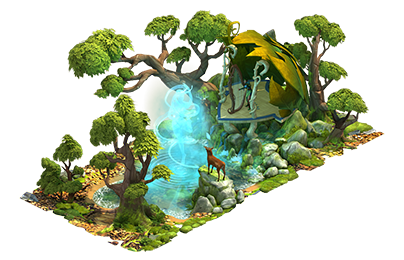As a scrolls boosted player with 8 moonstone library sets I have found little need to reduce my scrolls. I did remove one Scrolls mfr but that was because I'm busy putting in 8 more steel T1 (see above suggestions by edeba). As long as "scrolls in abundance" is profitable I'm sticking with them as much as possible. Of course, they wouldn't be profitable if people actually traded them for their true market value but some people believe the devs should be setting their "in-game" market value. That the deves use production costs rather than supply/demand is obvious and that people believe production costs are the measure of value allows me to make a profit.
Of course, I'm shooting myself in the foot a bit because I am letting everyone know over and over that the star system isn't about the value of the goods but about their cost of production. Thus, a 2-star trade says, "the cost of production of X is the same as Y," not, the value of X is so many Y. Each star level is saying, "the cost of producing what you are offering in comparison to what you are asking in exchange is .... 0 stars, "way, way out of whack," 1 star, "out of whack", 2 stars, "about the same", 3-stars "more expensive." None of it has anything to do with the value of the goods being offered or accepted and THAT is why we have the imbalances we have. If people traded at market value you'd see all scrolls on Khelonaar going for 1.2 to 1 at the T2 level and soon things would be back in balance with the scrolls producers able to get what they need easily.
How is it stretched? Does everyone pretty much sense that there are an abundance of some goods and not of others? I think the answer is clearly, "yes." This is a supply/demand imbalance. Do people adjust their asking price and reduce what they ask for in exchange for that which they have in abundance? Yep, that too. Do people feel they have to get what they need when they need it and are willing to pay more for it? Can't disagree with that. All of which sounds to me like the human psychological responses you get in the "real world" when there are surpluses and shortages. Doesn't sound stretched to me at all, but actually a pretty good fit. So how is it stretched? And if it's not, how come you aren't "on board?"
AJ

 Dear forum visitor,
It looks as though you have not registered for a forum account, or are not signed in. In order to participate in current discussions or create new threads, you will need to register for a forum account by clicking on the link below.
Dear forum visitor,
It looks as though you have not registered for a forum account, or are not signed in. In order to participate in current discussions or create new threads, you will need to register for a forum account by clicking on the link below.